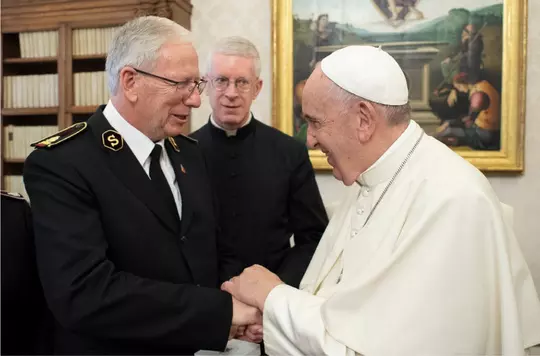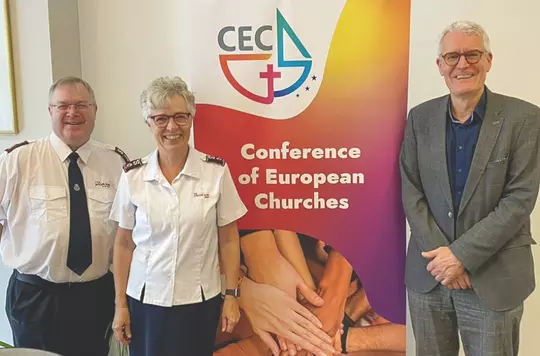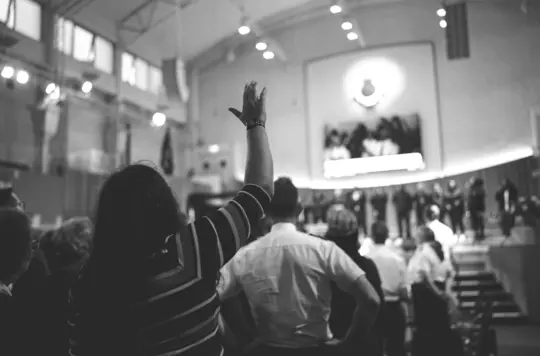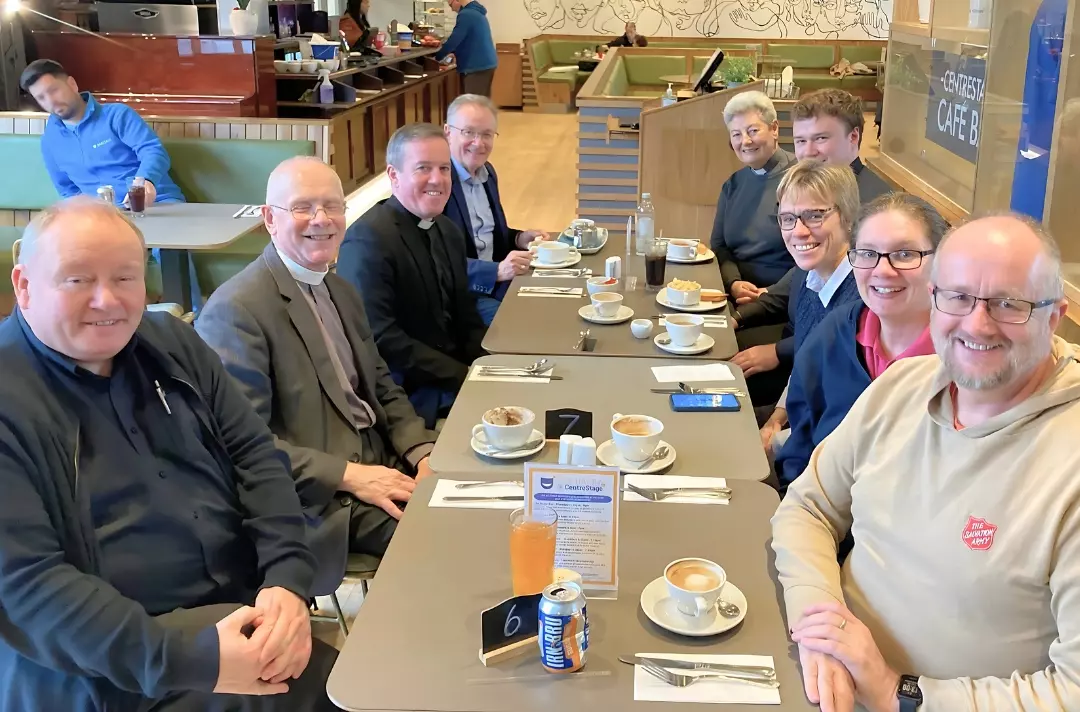18 January 2025
What does ecumenism look like in The Salvation Army?
Stevie Hope

Territorial Ecumenical Officer Major Paul Robinson shares some thoughts on Church unity with Stevie Hope.
What exactly is ecumenism?
It’s making relationships with Christians of other denominations, getting ourselves known and making connections. Every church has the same problems. We might call them different things, but everybody’s in the same boat. We have to listen to stories and share ours, because when you build relationships interesting things happen.
What role do divisional ecumenical officers (DEOs) play?
I work with national Churches Together groups. DEOs attend Churches Together meetings for smaller areas and regions. As you go further down the geographical scale, corps might meet with their local Churches Together group.
Once somebody knows and trusts us, we can have more involvement, so we try to make sure we’re represented on every level. A lot of people still think we’re only a charity; not everybody sees us as a church. The ecumenical team helps people know who we are and why we’re here.
In the Army, nearly everybody involved in the ecumenical team is an officer. This is fine, but in most churches it’s just lay people – people who have a heart for it. If somebody were interested in joining the team – locally or countywide – that would be really helpful. There are soldiers and adherents who would represent the Army in a really positive way, and we want to give opportunities to minister.
How did you get involved in ecumenism?
I was brought up Methodist and went to a gathering with people from the Church of the Nazarene. Although we were just young people having fun, they explained their doctrines. We just couldn’t believe it; they believed the same as we did!
We assumed our churches were different. Bit by bit, you realise that coming together is good because we share so much. Together we find friends to share the journey with.
This year is the 1,700th anniversary of the Council of Nicaea. Why does that matter?
AD 325 was the first ecumenical council, when Christians gathered to define Jesus and work out what it means to be the Church in relation to him. Was he God? Was he a nice man? Was he the God-man? They created the Nicene Creed. In the Army, we perhaps don’t know it well, but we agree with it.
There will be lots happening throughout 2025 to celebrate this anniversary. The first is the Week of Prayer for Christian Unity.
There are many denominations within the Church. Is there a risk some people might think that means some are ‘more’ Christian than others?
If you see Jesus in someone, the category, badge or whatever doesn’t matter. The Salvation Army isn’t perfect – we’re sinners who have been saved. We don’t have all the answers on our own.
We shouldn’t argue for the sake of it. There are people with strong views who would persuade you their way is right. Occasionally, there are people who don’t view Salvationists as Christians at all. I’m not interested in arguing, but rather showing who we truly are. That’s a relationship that takes time, and it’s never done overnight.
The Army started as a mission to people who didn’t, wouldn’t or couldn’t go to church. The idea was to take them to other churches, but they were rejected. That’s how we became a denomination. But we’re a mission – we exist to help people know God.
You matter, whoever you are. Not the Army’s way of doing things. We’re not more Christian because of what we do. We offer an alternative that makes us available to particular people. We’re part of a universal Church, and I believe there’s a church for every person. If somebody comes to the Army, that’s wonderful. But if they prefer high Anglicanism or Pentecostalism, that’s fine because we’ve done our bit to get them to Jesus. We shouldn’t be saying ‘do this’, or ‘don’t do that’. We should be saying: ‘Come and try us. If you’re happy, stay.’
Written by

Stevie Hope
Editorial Assistant
Discover more

Supporting and developing the ecumenical and interfaith work of The Salvation Army.

Commissioner Vibeke Krommenhoek (IHQ) and Territorial Ecumenical Officer Major Paul Robinson visit the Conference of European Churches (CEC) office in Brussels.

Divisional Ecumenical Officer Captain Tracy Collis (Lancashire) reflects on a visit to a Romanian Orthodox church.

During the Week of Prayer for Christian Unity, Lieut-Colonel Jonathan Roberts highlights aspects of the territory’s ecumenical strategy.
